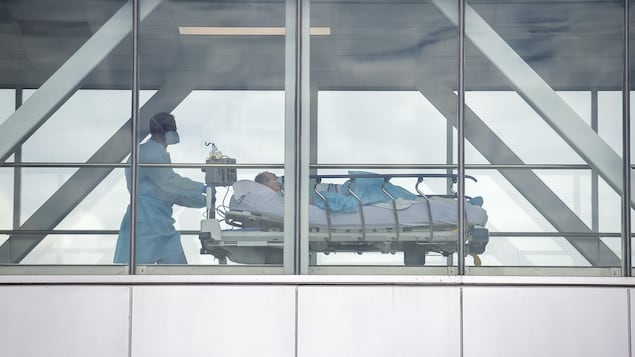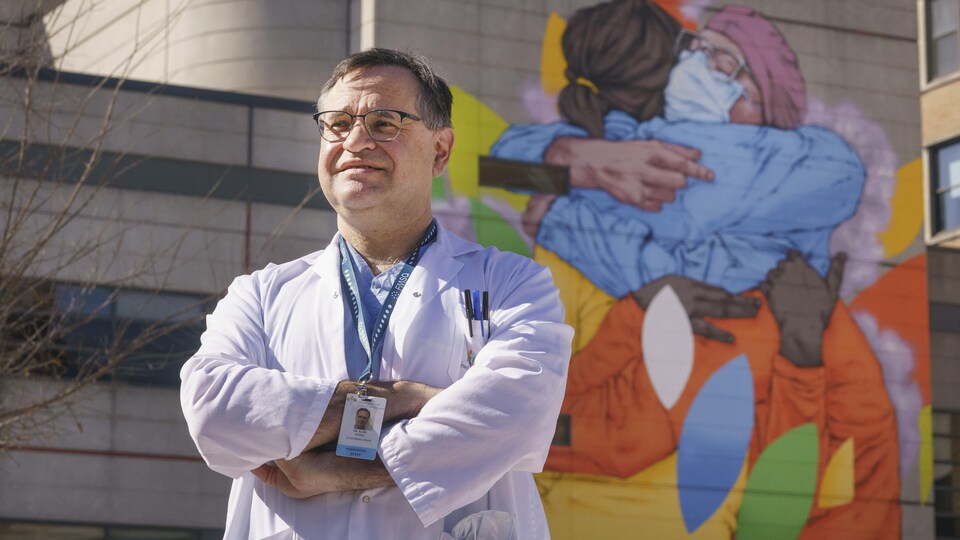
Interviewed on the show The First the facts, emergency physician Joan Liu admitted to being deeply affected by the COVID-19 pandemic. However, when he was the head of Médecins Sans Frontières, he already had to deal with infectious crises in poor countries and regions. He also led a mission to the organization in West Africa from 2014 to 2016 to deal with the Ebola epidemic.
However, the force with which the COVID-19 pandemic hit the world surprised Dr Liu.
In Canada, a G7 country, I honestly didn’t believe it would be as difficult as it was. Deaths in nursing homes in particular will remain a blot on our history. My takeaway from all of this is that it’s not because we’re rich, it’s because we’re doing better.
Canada, like many countries, is ill-prepared to deal with such a virus.
There is no doubt that we are not sufficiently prepared, says Joan Liu. Now, looking ahead, how do you prepare for the next time?
” Hopefully there will be a next time. We don’t know when that will happen. We need to think collectively to ensure we are stronger and more resilient. »
For Dr. Carl Weiss, a microbiologist and infectious disease specialist at the Jewish General Hospital in Montreal, these arrangements go beyond the realm of public health.
First, an influenza pandemic was expected, and finally, what happened was a COVID-19 pandemic, which was completely unusual. It shows that preparation is much more than public health. It is a social product that extends to the logistical and organizational levels and to the level of industries.
Dr. Weiss said in an interview on the show The First the facts.
It will take statewide preparation, which will include several components, including mobilization. Remember at the beginning: We don’t even have enough people to feed the elderly CHSLD.
Some countries have responded much better than others, and there are lessons to be learned from all of these
Dr. Weiss explained.
More unity
In addition to the significant international effort to identify the virus, develop a vaccine, and develop treatments for COVID-19, the inequity in the distribution of tools to combat the disease is evident around the world.
Honestly, when you’re in crunch time and resources are limited, it’s every man for himself. Every man is for interests [intérieurs] from the country. That is why, in the midst of a pandemic crisis, we must come together in peacetime to negotiate in a more humane way.
Joan Liu, who sits on the World Health Organization’s independent panel on pandemic responses, noted.
The group aims to lay the foundation for an international governance system that allows for better cooperation and equitable distribution of resources during health crises.
” In times of crisis, we see the best and worst of man. I hope we can create a pandemic agreement[Organisation mondiale de la santé] And establish global governance to be more unified when such events occur. »
Panel discussions focused on sharing resources, including vaccines and treatments for emerging viruses.
We need to look at how we can ensure that everyone has access, not just one part of the planet that can be protected and treated. It is not possible [présentement]And it needs to change
Dr. Liu continued.
The response to an epidemic is not a technical public health response, but a trans-governmental response. Don’t just negotiate at the medical technical level. This needs to be negotiated at the political level and in the United Nations.
Important information
This new global pandemic management system will contribute to better information sharing and greater transparency regarding viruses and their origins. Currently, theWHO Still trying to learn about the corona virus.
Right now, we don’t know. We have no scientific evidence to support this explanation. Until we have an explanation based on science, all hypotheses are on the table and we must follow them.
Spokesman Tarik Jasarevic saidWHOIn an interview with Alain Gravel.
for thisWHOKnowing the origin of the virus is absolutely essential.
It is important to understand the source of each epidemic or epidemic not only for scientific reasons but also for moral reasons.
Mr. Jasarevic continued.
From a scientific perspective, knowing how the virus got into humans can help ensure it doesn’t reoccur. It can also tell how the virus spreads. But there is also a moral reason. More than 15 million people have died from Covid-19. We have an obligation to tell people how we got here.





More Stories
More than 200 former Republican aides back Kamala Harris | US Election 2024
An investigation into the ill-treatment of the Lev Tahor sect in Guatemala
Brossard is suspected by the US of supporting Russia’s war effort